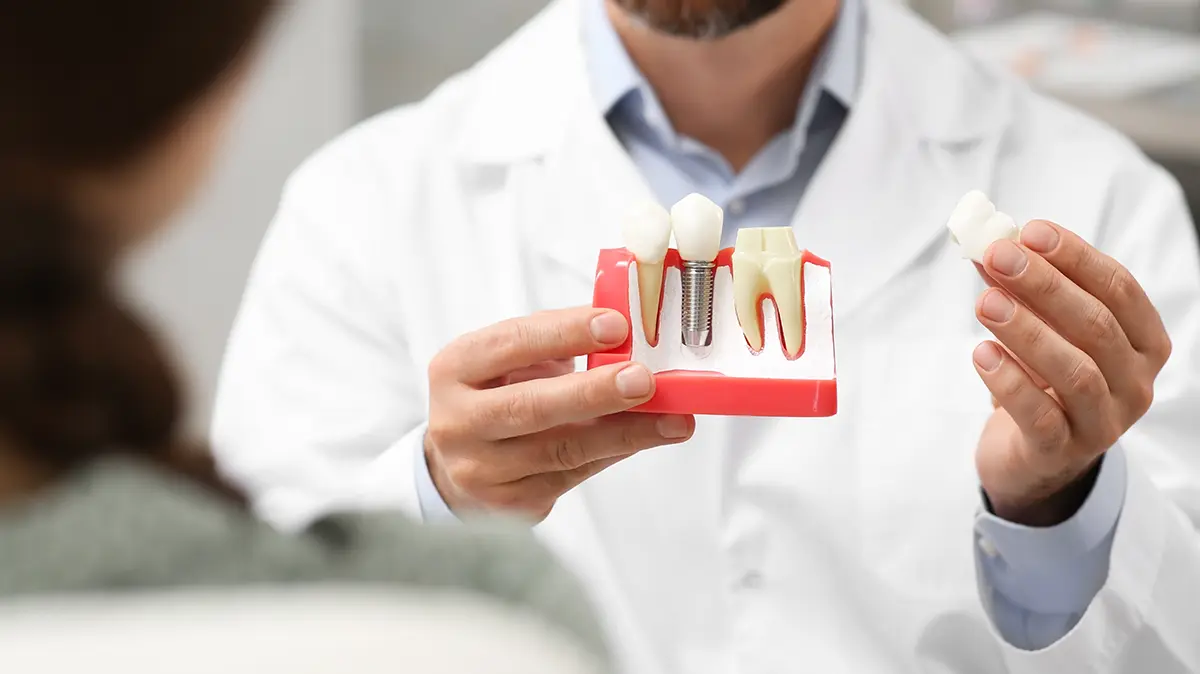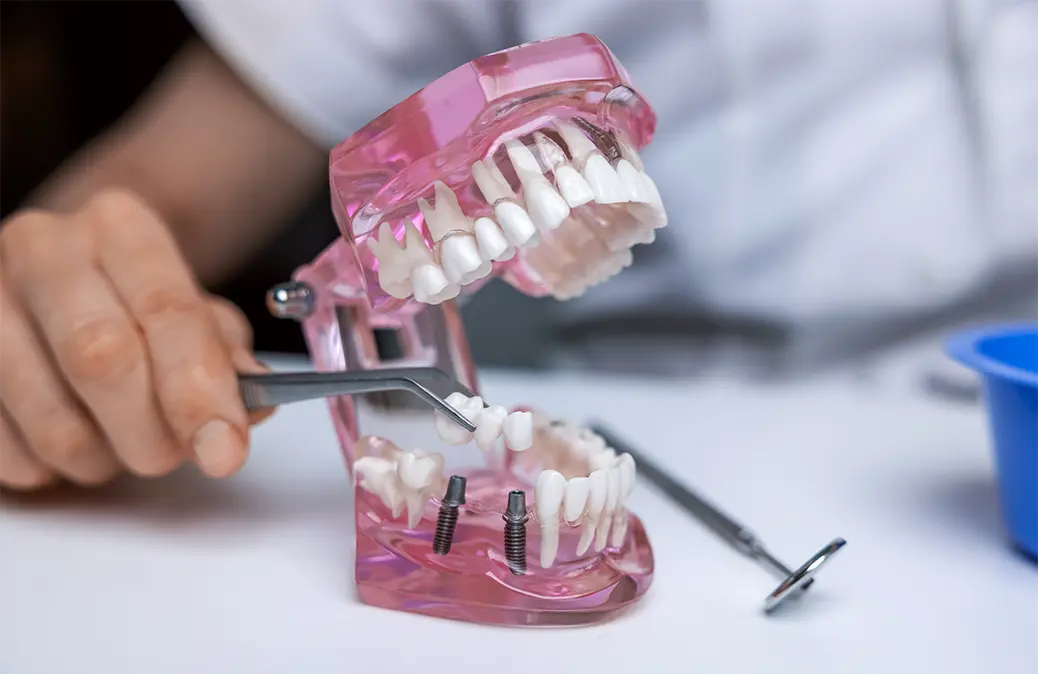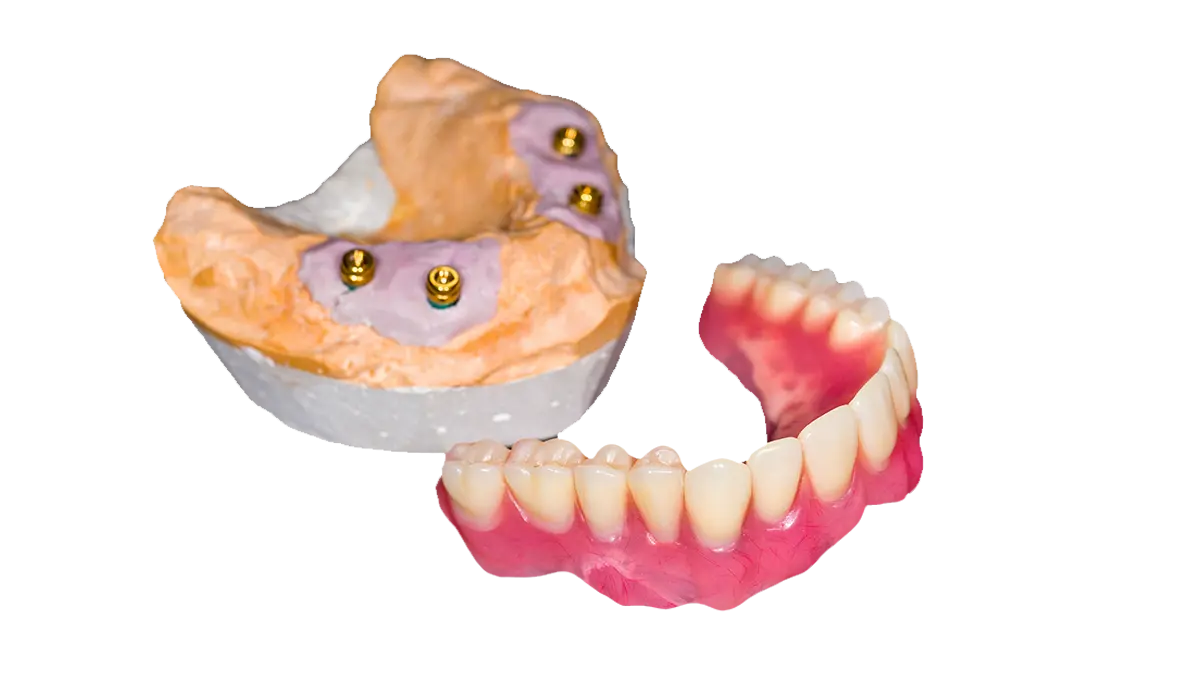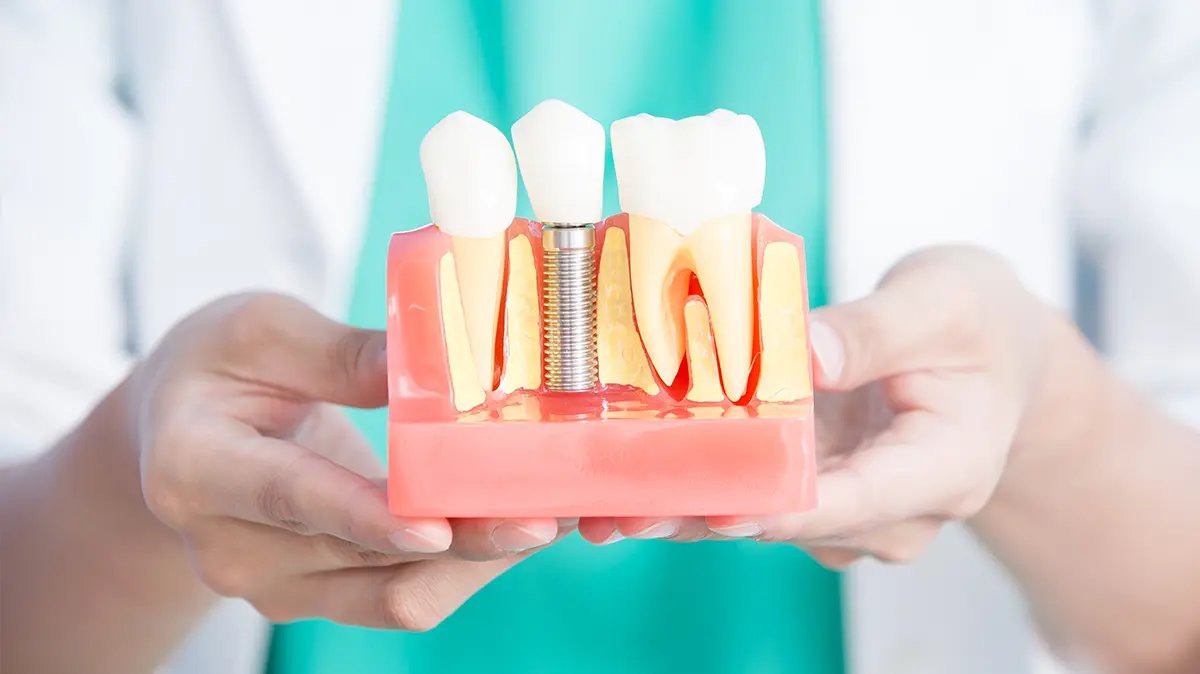Thinking about replacing missing teeth? You’re not alone! More people than you may realise have faced this same decision and chosen an option that looks and feels so natural that it flies under the radar. In the range of options you could consider for a tooth replacement, dental implants stand out as the gold standard, providing a strong foundation for a confident smile. It’s time to explore what makes dental implants the ultimate smile foundation, ensuring durability, functionality, and a natural appearance. Let’s dive into the details to help you decide on the best fit for your needs.
What are dental implants?

Restoration to match your situation
Replacing a single tooth
For individuals who are missing one tooth, a single implant can replace it without affecting the surrounding teeth. The implant integrates with your jawbone, becoming a stable foundation. Then, a custom-made crown is attached, matching your natural teeth perfectly. The result? A fully functional, independent tooth, just like the one you lost.Multiple tooth replacement
If you’re missing several teeth, a dental bridge supported by multiple implants can be used to replace them. Traditional bridges put pressure on adjacent teeth, but implant-supported bridges are anchored in the jawbone, like your natural teeth. This preserves the health of your remaining teeth because they don’t have to bear the extra load.
Full-arch restoration
If most or all of your teeth need to be replaced, dental implants can support full-arch restorations. Implant-supported dentures offer an advanced solution which is more comfortable, functional and natural-looking than traditional removable dentures. Depending on your specific needs, a full set of replacement teeth can be secured with as few as four to six implants, offering functionality and appearance comparable to natural teeth.
How dental implants provide strong smile foundation
Osseointegration is the key to success
What makes dental implants so strong is a process called osseointegration. Once the titanium implant is placed in your jaw, the surrounding bone naturally grows and fuses to the implant. This creates a solid, biological bond that makes the implant part of your bone structure, giving it unmatched stability and durability. Unlike dentures or bridges, which sit on the gums or rely on adjacent teeth for support, implants become a permanent fixture, integrated with your bone.
Superior titanium material
The majority of dental implants are made from medical-grade titanium, which is both biocompatible and corrosion-resistant. Titanium is widely recognised for its strength, durability, and ability to withstand immense pressure, making it the ideal material for a tooth replacement to last decades.
Bone health benefits
Prevents bone loss
One of the major advantages of dental implants is their ability to stimulate bone growth. When you lose a tooth, the bone that once supported the tooth root starts to shrink over time due to lack of stimulation, a process known as bone resorption. Traditional dentures and bridges cannot prevent this bone loss. However, because dental implants mimic the function of a natural tooth root, they help preserve and even stimulate new bone growth, maintaining the structure of your jawbone and face shape.
Maintains facial structure
Missing teeth can lead to changes in your facial appearance over time, such as sunken cheeks or a prematurely aged look. Since dental implants preserve bone and gum tissue, they help maintain the natural contours of your face, preventing the sagging or hollowed-out appearance that often comes with tooth loss.

Long-term durability and stability
Permanent and long-lasting solution
Dental implants are designed to be a permanent solution for missing teeth. With proper care, they can last a lifetime. This durability stems from their unique ability to integrate directly with the jawbone, creating a strong smile foundation that can withstand daily wear and tear. Since implants do not rely on surrounding teeth for support, they maintain their integrity over time, providing a stable and functional restoration.No impact on adjacent teeth
Another significant advantage of dental implants is their ability to preserve the health of adjacent teeth. Implants function independently, meaning they do not require alterations to surrounding teeth. This preservation ensures that the overall structure of your mouth remains intact and reduces the risk of complications that can arise from altering healthy teeth. By maintaining the integrity of your natural teeth, dental implants contribute to better oral health in the long run.
Functions as close to natural teeth as possible
Strong bite force
One of the biggest concerns people have when losing a tooth is whether they can chew properly afterwards. Dental implants address this worry effectively. Because they fuse with your jawbone, implants restore bite force that closely resembles that of natural teeth. This allows you to enjoy a wide variety of foods, from crisp vegetables to tender meats, without the discomfort or limitations that can come with dentures. With implants, you can eat confidently, knowing that your ability to chew is almost as good as it was with your natural teeth.
Enhanced comfort and speech
Dental implants provide the ultimate comfort because they function like your natural teeth. Unlike removable dentures, which can slip or shift in your mouth and may cause discomfort, implants are fixed, providing confidence and ease in speaking and eating. Additionally, dental implants do not cover the roof of your mouth (as dentures do), which lets you taste your food more fully and speak more clearly.

Enduring results
Dental implants get the job done right in every way, and they are with you for the long haul as your permanent solution to missing teeth. A recent study by Sartoretto et al. (2023) found that implants have an impressive survival rate of 94.6% after an average follow-up period of 13.4 years. This remarkable durability reflects the strength and reliability of implants, making them a trusted choice for restoring both function and confidence.
Several key factors contribute to this high success rate:
Biocompatible materials: Most dental implants are made from medical-grade titanium, a material known for its biocompatibility and strength. This means it can integrate well with the human body without causing adverse reactions, promoting successful osseointegration and ensuring long-term stability.
Skilled professionals: The expertise of the dentist or oral surgeon plays a vital role in the success of dental implants. A skilled practitioner will not only follow best practices but also tailor the procedure to the individual needs of the patient, minimising risks and enhancing outcomes.

Easy maintenance
Caring for dental implants is straightforward and aligns with the routine you would follow for your natural teeth:
Daily brushing and flossing: It’s essential to brush and floss your implants daily to keep them clean and free of plaque. This practice helps prevent gum disease and ensures the long-term success of your implants.
Regular dental checkups: Routine visits to your dentist are vital for maintaining the health of your implants and the surrounding gum and bone tissue. These checkups allow for early detection of any potential issues, helping you keep your smile healthy for years to come.
Professional cleaning: Professional cleanings are an important part of your implant care. Your dentist or hygienist can remove any plaque or tartar buildup that may not be fully addressed by your at-home routine. These cleanings also provide an opportunity for a thorough examination of your implants and overall oral health.
The maintenance of dental implants is seamless and can be easily integrated into your daily oral hygiene routine. This simplicity not only enhances convenience but also contributes to the longevity and effectiveness of your implants, ensuring a lasting and healthy smile.
Are dental implants right for you?
Dental implants provide the strongest foundation for tooth replacement, but they may not be suitable for everyone. Your dentist will assess whether you have enough bone density to support the implant. If significant bone loss is present, a bone graft may be needed to create a stable base. Additionally, certain health conditions or habits—such as smoking—can affect the success of the procedure. A thorough evaluation will help determine if dental implants are the right choice for you.
Restoring function and confidence

The misery associated with tooth loss is largely avoidable if you take the right tooth replacement steps. Dental implants are the most durable, stable, and functional tooth replacement option available today, providing artificial equivalents to what was lost. Remarkable in their ability to integrate seamlessly with your jawbone, preserve facial structure, and provide natural-like functionality, they are the strongest foundation for a lasting smile after tooth loss. With proper care, dental implants not only restore your appearance but also enhance your quality of life by allowing you to eat, speak, and smile with confidence.
Maintaining your facial structure and youthful appearance
In addition to the aesthetic benefits of filling a tooth gap, dental implants help maintain the integrity of your jawbone, preventing bone loss and ensuring that your facial features remain youthful and vibrant. This unique advantage means you can enjoy all your normal social interactions without worry, knowing that your implants are designed to maintain your face shape.



